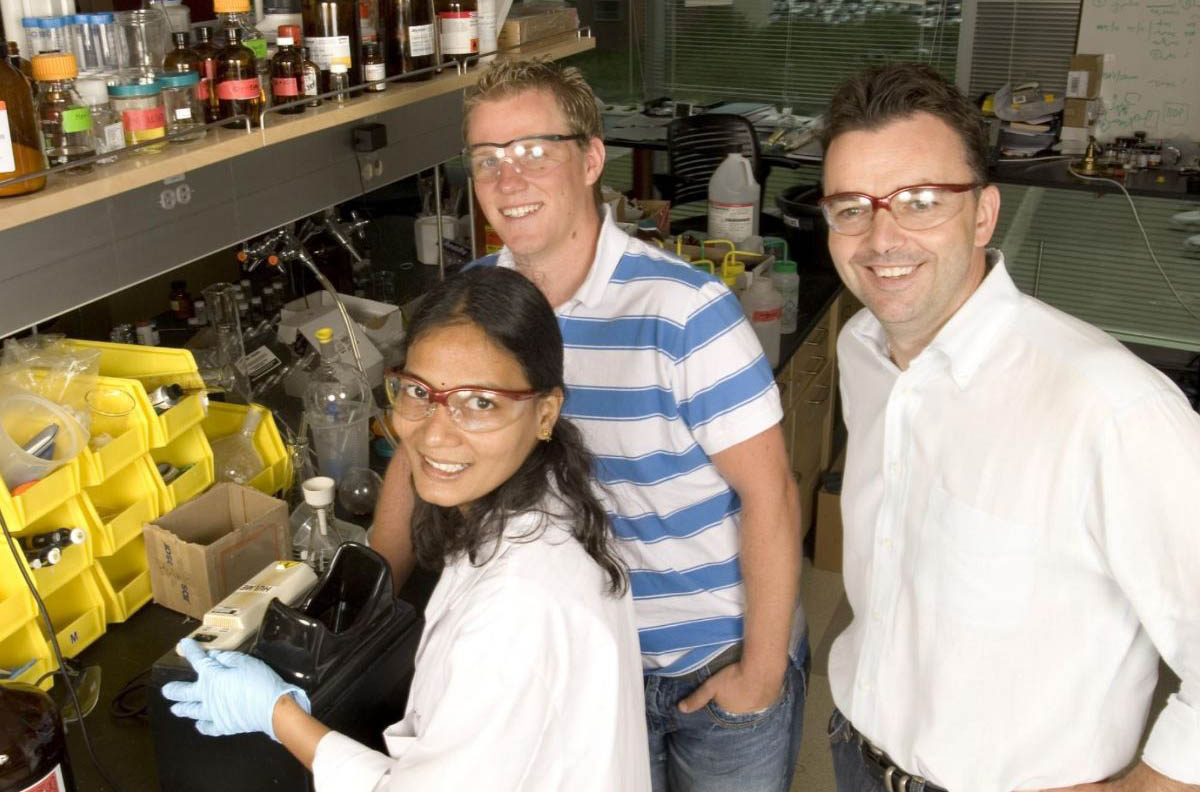
Critical Path Institute’s TRxA Announces $750,000 in Awards to Boost Drug Development
Critical Path Institute’s Translational Therapeutics Accelerator has announced its first two research grants supporting academic scientists in advancing novel compounds through the drug development process. Launched in June 2022, TRxA is a global drug discovery and development program focused on supporting academic scientists in defining optimal strategies for advancing new, cutting-edge therapeutics, from the lab to patients.
Christopher Hulme, Ph.D. and William Montfort, Ph.D., both from the University of Arizona, in collaboration with Sourav Banerjee, Ph.D., from the University of Dundee, have received a TRxA award to establish a pleiotropic brain-penetrant small-molecule to impede glioblastoma, a rare and highly invasive form of brain cancer. “There is a severe lack of therapeutic options for GBM,” said Hulme.
“We are proud to be among the first academic researchers to receive a TRxA award, so our work can ultimately translate into significant clinical impact.” Also receiving one of TRxA’s first awards are Dr. Yong-hui Jiang from Yale School of Medicine and Jian Jin, Ph.D., from the Icahn School of Medicine at Mount Sinai, for a project focused on developing an epigenetic therapy for Prader-Willi syndrome by a novel bioavailable small molecule.
“PWS is a genetic childhood disorder currently with no specific therapeutic interventions,” said Jiang. “TRxA funding and support will be instrumental in advancing our approach to address this area of high unmet medical need. ”In addition to funding for drug development studies, TRxA’s unique nonprofit drug accelerator model provides subject matter expertise to principal investigators and their teams to help drive success and mitigate risks inherent to early-stage research for development of new therapeutics.
“For many reasons, the transition from discoveries in the academic environment to drugs entering the pipelines of pharmaceutical companies is often a place where significant opportunities for innovative therapies are lost — frequently referred to as the drug development ‘valley of death,’” said TRxA Executive Director Maaike Everts, Ph.D. “Our collaborative approach is designed to support academic investigators bridge this ‘valley of death,’ with the shared goal of advancing novel therapeutics from the lab to clinical trials and, ultimately, commercialization and patient care.”
“As an organization that generates regulatory-endorsed solutions and methodologies to accelerate drug development, C-Path is proud to expand our global impact by leveraging the Institute’s proficiency in translational and regulatory science to support academic researchers developing innovative compounds that have the potential to bring new therapeutics to patients,” said C-Path CEO Dr. Daniel Jorgenson. “We are grateful to Tucson-based Research Corporation Technologies’ Frederick Gardner Cottrell Foundation for making TRxA possible.”





